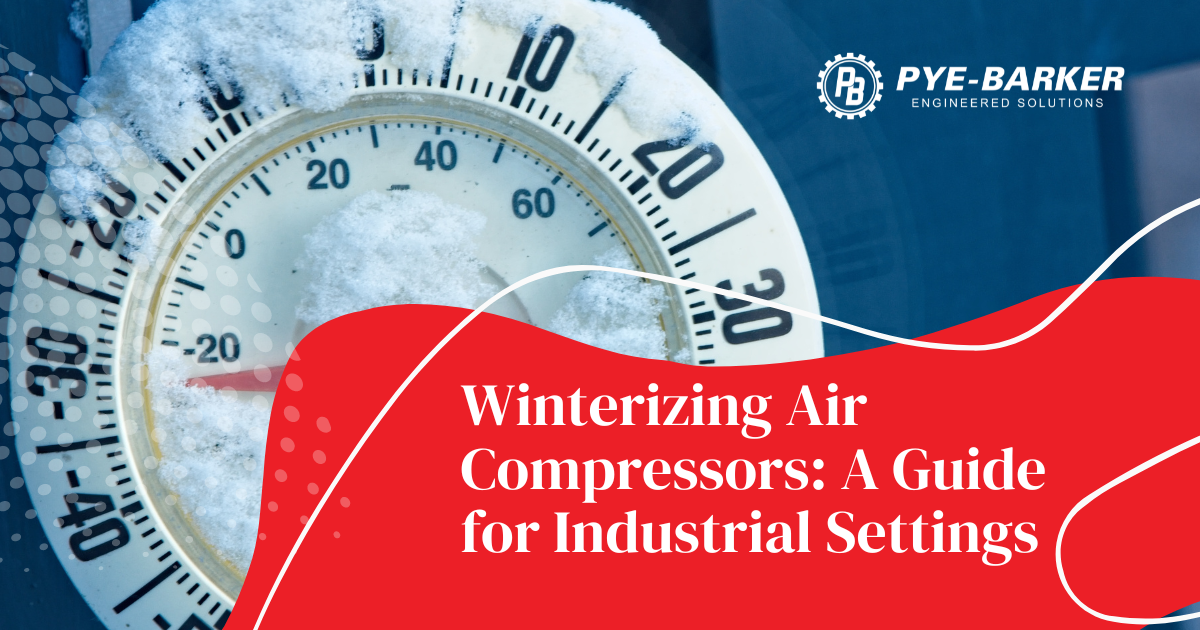As the mercury drops, industrial facilities brace for the challenges cold weather brings, particularly to air compressor systems. Maintenance and engineering professionals understand that preparation is crucial to prevent operational failures and maintain efficiency. Here’s an expert guide on how to gear up for the cold months.
Winterizing Air Compressors: Vigilant Condensate Management
With winter looming, it's essential to revisit your condensate drainage protocol. Accumulated condensate can wreak havoc in sub-zero temperatures. Here’s how to secure your system:
- Strainer Maintenance: Regularly clean strainers to prevent blockage from rust and debris.
- Drain Functionality: Ensure effective operation of drains in water separators, dryers, and receiver tanks.
- Heat Applications: Deploy heat strips or lamps in areas susceptible to freezing to mitigate condensate issues.
Optimal Dryer Operation
Downtime in dryer operations can lead to moisture-laden air downstream. To maintain optimal conditions:
- Maintain a clean condenser on refrigerated dryers.
- Replace dryer mufflers if the temperatures are forecast to fall below freezing, to prevent potential back pressure.
- Install a dew point monitor for real-time moisture level assessment.
Air Intake Protection
Air compressors breathe easier without the burden of precipitation or particulates.
- Shield intakes from inclement weather, steering clear of designs that face upwards.
- Utilize robust filtration and provide structural coverage to compressor units.
Diligent Filter Maintenance
The importance of filter upkeep cannot be overstated, especially when colder weather increases the risk of airflow restrictions.
- Regular monitoring and cleaning of air filters are non-negotiable for smooth operation.
- Scheduled maintenance should be scrupulously followed, with an emphasis on the colder months.
Strategic Weatherproofing
In regions where the cold hits hard, protecting the physical integrity of your compressor room can save you from a plethora of cold-weather woes.
- Insulate and seal off drafts with weatherstripping.
- Employ heat lamps judiciously to avert temperature-induced control issues.
Cold Weather Incident Readiness
The host recounts a critical incident when a compressor failed to start during a college football game, highlighting the unexpected nature of cold weather impacts and the urgency of readiness.
- Financial Implications: Underestimating the cost of unpreparedness can lead to significant financial loss from equipment downtime and damage.
Air Compressor Maintenance for Cold Weather
Understanding the inherent challenges of compressor operation during winter is key to effective maintenance.
- Addressing Frozen Control Lines: Use heat lamps to thaw control lines, preventing blockages by evaporating trapped condensate.
- Mitigating Receiver Tank Moisture: Regularly drain receiver tanks to avoid water expulsion through system hoses.
- Drainage System Overhaul: For larger systems, swap out timer drains prone to clogging for zero loss drains that offer superior reliability and moisture management.
Routine Lubricant Analysis
The 'lifeblood' of your compressor, the lubricant, should be regularly tested not just for water content but also for acid levels that can harm your system.
Understanding Cold Weather Dynamics
Different compressor types react distinctively to cold air intake.
- Reciprocating Compressors: They experience minimal effects due to built-in thermal valves.
- Turbo Compressors: These perform better with cold air as it is denser, thereby more efficient.
Support and Expertise
Pye-Barker Engineered Solutions stands ready to assist with any compressor-related queries, from general maintenance to nuanced technical support for air quality and equipment applications.
Call us today at 404-363-6000 to discuss your needs with our team, or visit us at https://pyebarker.com/contact-us/ to leave us a message.
For a more in-depth look, watch the original webinar here - https://pyebarker.kartra.com/page/webinar



